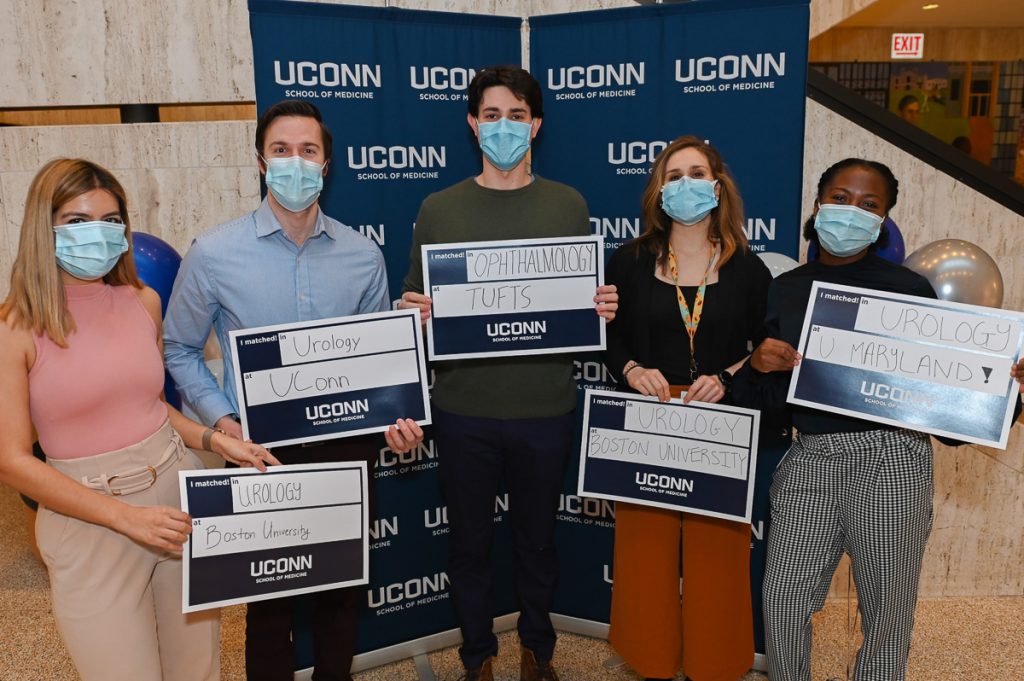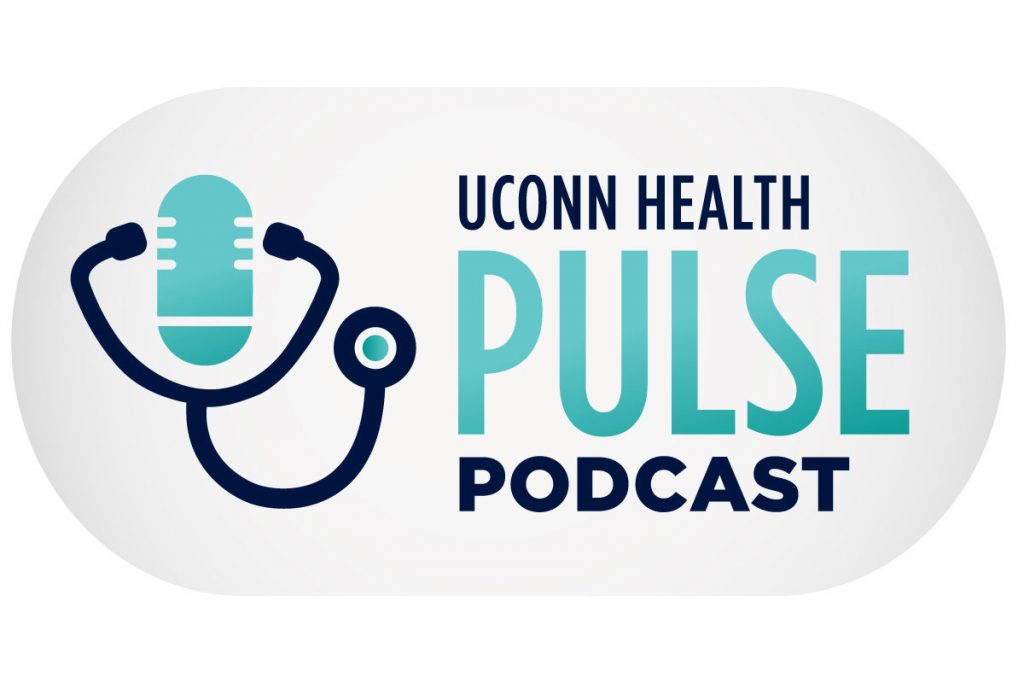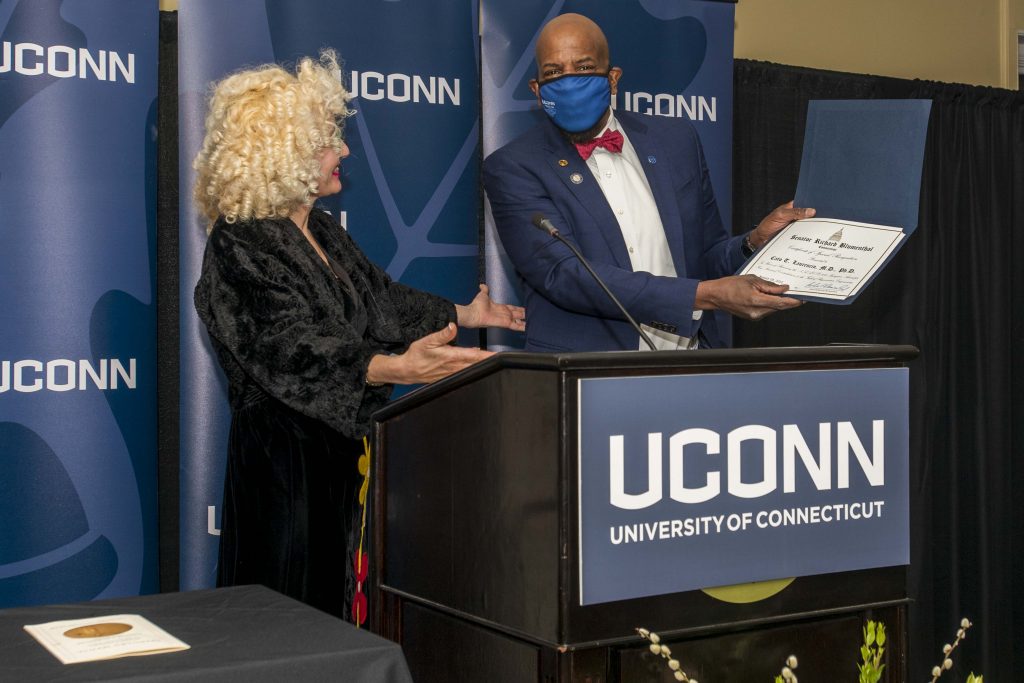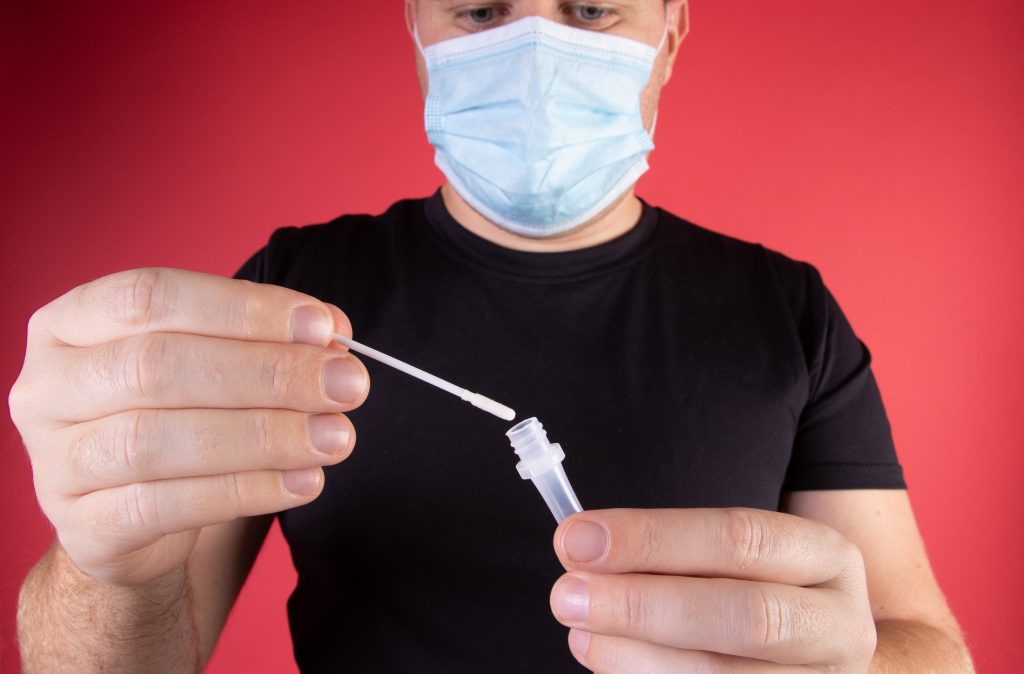UConn Health
Tips for Tiny Teeth
In honor of National Children’s Dental Health Month, Dr. Katherine Fleming, assistant professor of pediatric dentistry, answers the top questions from parents of infants and toddlers.
February 9, 2022 | Courtney Chandler
UConn Researcher Studies Connections Between the Gut Microbiome and MS Symptoms in Intermittent Fasting Clinical Trial
Dr. Yanjiao Zhou will analyze samples from multiple sclerosis patients who underwent a 12-week intermittent fasting program to detect changes in their gut microbiomes.
February 9, 2022 | Anna Zarra Aldrich '20 (CLAS), Office of the Vice President for Research
Seven Soon-to-Be Doctors Get an Early Residency Match
UConn School of Medicine's largest class of students participating in the early match process learned where they are set to spend the next several years for advanced residency training in urology, ophthalmology and the military.
February 8, 2022 | Lauren Woods
Podcast: Best Ways to Treat the Feet
Dr. Lauren Geaney, UConn Health foot and ankle surgeon, explains some of the newest, minimally invasive ways to treat common and complex foot problems.
February 2, 2022 | Chris DeFrancesco '94 (CLAS)
Researchers Look at the Evolution of Mammals to Uncover Gene Regulation Connecting Pregnancy and Cancer Metastasis
'What we learned from other species has direct applications in advancing our understanding of human cancer'
February 2, 2022 | Courtney Chandler
UConn Researchers Improve Prediction of Heart Attacks
Foamy cells offer researchers better information on who might be most at risk
February 2, 2022 | Kim Krieger
Heart Health Remains Paramount Concern for Women, Even During Pandemic
Delaying health care over fears of the COVID-19 virus can have potentially deadly consequences
February 1, 2022 | Lauren Woods
UConn Celebrates Dr. Cato T. Laurencin for Historic NAACP Top Honor
Previous Spingarn Medal recipients have included Martin Luther King, Maya Angelou, Jackie Robinson, and others
January 31, 2022 | Lauren Woods
UConn Researcher’s Home COVID-19 Test Comparable to PCR Accuracy, Selectivity
A lab-on-paper platform that uses genetic markers to detect the virus even as it mutates
January 28, 2022 | Anna Zarra Aldrich '20 (CLAS), Office of the Vice President for Research
Put a Freeze on Winter Storm Injuries: Expert Advice from UConn Health
Experts from UConn Health and the UConn Fire Department share these top safety tips to make sure everyone is prepared and stays safe during this weekend's major snowstorm.
January 27, 2022 | Lauren Woods









